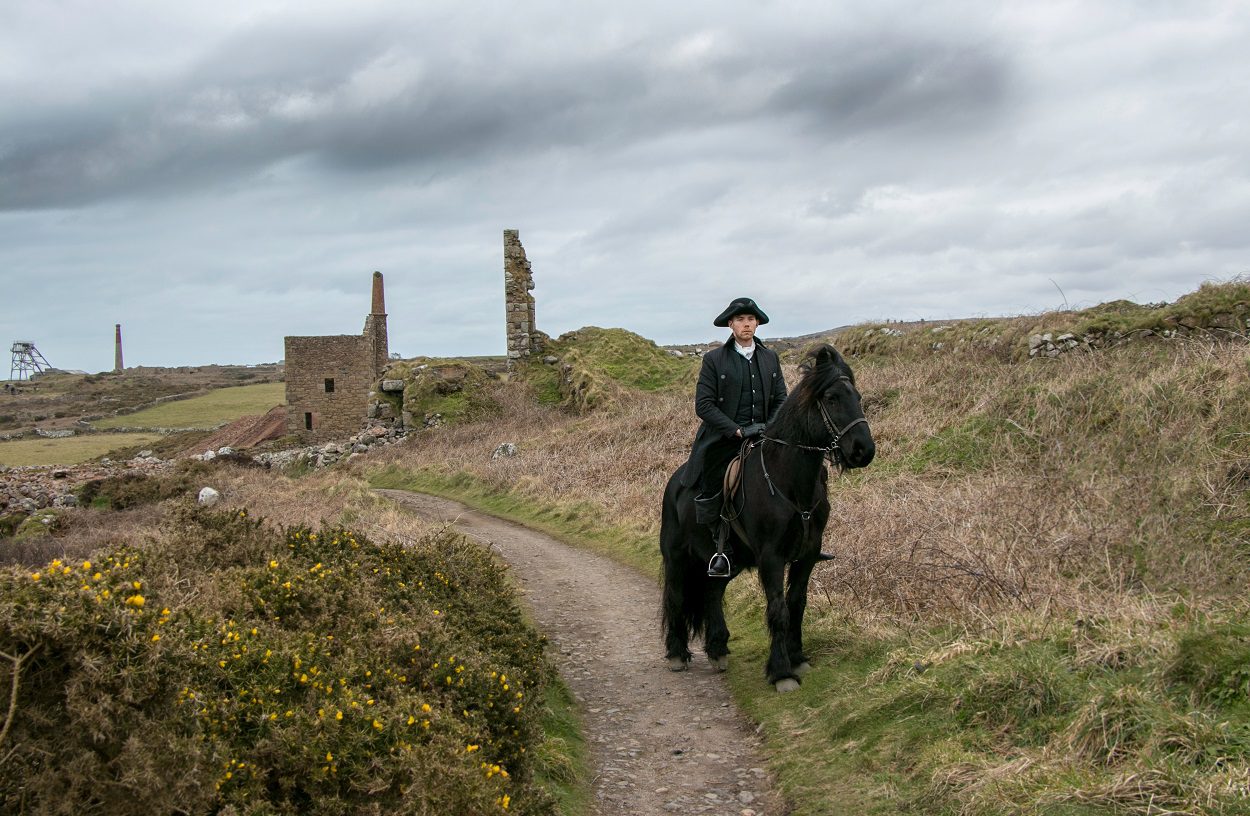Ross Poldark is the main Protagonist in a series of novels set during the late 18th century by author, Winston Graham.
The 12 book series starts with Poldark returning to the rugged coastline of Cornwall after serving with the British army in the American Revolutionary War.
He soon discovers that his former life in Cornwall is just a distant memory, as the woman he loves has married his cousin, his father is dead, and the family home has fallen into disrepair.
Without concern for his own social standing, Poldark marries his housemaid Demelza, defends the vulnerable who are exploited by the gentry, and reopens the family mine to ameliorate the conditions for his tenants and nearby workers.
Winston Graham claims that his inspiration for Poldark was never based on just one man, however, many similarities can be found with Thomas Hawkins, a wealthy 18th-century mine-owner.
Thomas was born in 1724, the son of a leading barrister and public official. He inherited the Trewithen estate, one of the largest privately owned estates in Cornwall following the death of his uncle.
Thomas was elected in 1747 as the MP for Grampound, a Parliamentary borough in Cornwall, and built a lucrative mining Empire across the county for the extraction of tin that gave employment to thousands of workers.
He fell in love with Anne Heywood, and they both moved into Trewithen in 1756 following their marriage. Just like the protagonist in the Poldark series, Thomas lost two of his children in tragic circumstances, and he himself died in 1766 after volunteering to take a smallpox vaccine to reassure his tenants – but instead contracted the disease.
Interestingly, his second son, Christopher Hawkins, features as a recurring character in the Poldark novels. Christopher was an infamous politician who was found guilty of bribery by a parliamentary committee, that Winston Graham portrays in the novels as a corrupt and cynical boroughmonger.
Based on notes left by Graham, another figure from Cornish history that gave inspiration for the Poldark character is Lieut Gen Sir Richard Hussey Vivian, a decorated officer and veteran of the Napoleonic Wars. Hussey Vivian was present at the Battle of Waterloo where he and the hussars under his command made the final charge of the day between Hougoumont and La Haye Sainte.
Born in Truro in 1775, Hussey Vivian’s father owned a successful copper smelting and mining business. Hussey Vivian returned to Cornwall and became a Member of Parliament, and in 1841 was made Baron Vivian of Glynn and Truro.
Header Image Credit : Shutterstock





